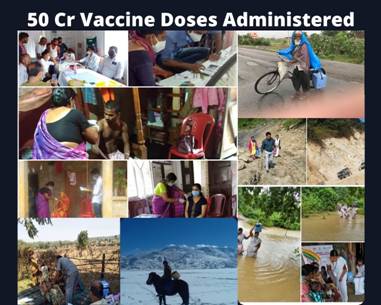India’s Prime Minister Narendra Modi has secured a victory for his alliance in the national elections, paving the way for what could be a historic third term in office. Despite the win, Modi’s Bharatiya Janata Party (BJP) and its allies fell short of the anticipated landslide majority, signaling a nuanced mandate from voters.
Scientific advancement emerges as a cornerstone of Modi’s agenda, with promises to bolster sectors like space exploration, quantum computing, artificial intelligence (AI), and renewable energy. Ajay Sood, principal scientific adviser to the Indian government, emphasized the government’s commitment to prioritize areas that promise tangible returns in the near future.
“Science is the highest priority for the government,” Sood affirmed. However, concerns linger regarding equitable distribution of benefits across all scientific domains. Soumya Swaminathan, chair of the M.S. Swaminathan Research Foundation, cautioned that while focused investments are vital, neglected areas like pandemic readiness and climate resilience demand attention.
The national election, conducted over multiple phases and involving over 642 million voters, concluded on June 1. Political analyst Aseem Prakash noted that Modi’s forthcoming term may be pivotal in solidifying his legacy, centered on advancing India’s self-reliance and indigenous technological prowess.
Key initiatives underscore the government’s direction. The recently launched National Quantum Mission and substantial funding for AI and semiconductor industries highlight India’s strategic ambitions. Plans to establish the country as a global hub for electronics manufacturing and green technologies further underline Modi’s vision of a technologically empowered India.
Despite these strides, challenges remain in mobilizing private sector participation in research and development (R&D). Harleen Kaur, a researcher at the Foundation for Advancing Science and Technology, emphasized the need for innovative funding mechanisms to supplement government initiatives.
Critics warn that a singular focus on economically viable technologies risks sidelining critical areas like aging-related health challenges and climate adaptation. Sandhya Visweswariah from the Indian Institute of Science stressed the importance of balancing applied and basic research to foster inclusive growth and address complex societal issues.
Looking ahead, Modi’s administration faces the task of navigating these complexities while harnessing India’s scientific potential to propel the nation forward on the global stage.
Source: Nature News












